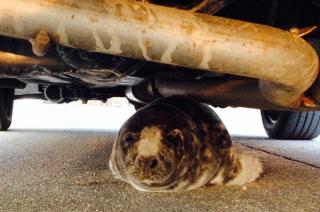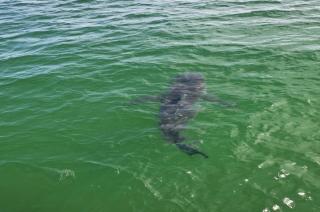Last month, NOAA declared an Unusual Mortality Event for pinnipeds, a group of aquatic mammals that include seals.
Seals
2018
2017
On Monday the stars aligned for a juvenile gray seal with a considerable amount of commercial fishing net wrapped around its neck and three natural resources officers called to its rescue.
2014
Thanks to Tisbury police officers on the midnight shift, a lost seal is back in the water — despite a quick detour under a police car.
2013
On the surface it seems like a simple and straightforward equation: more seals equals more great white sharks. The connection, however, is likely far more complicated.
2012
The July 30 shark attack at Ballston Beach in Truro has focused national attention on the seasonal occurrence of white sharks in waters close to Cape Cod and Island beaches. White sharks are no strangers to residents here; I certainly won’t forget kayaking with friends to see a female white shark trapped in a coastal pond on Naushon island in September 2004. There seems little doubt that we have witnessed more white sharks in areas frequented by swimmers along the eastern shore of the Cape over the past few years.
2011
There’s nothing worse than getting sick in the summer, and no group knows that better than the Island seal population which hopes to shake off a mysterious illness that has brought several weary seals ashore to die over the past couple months.





